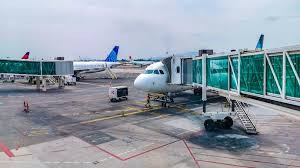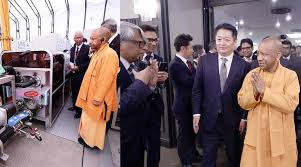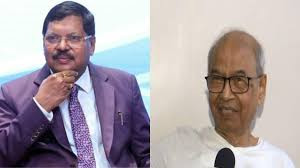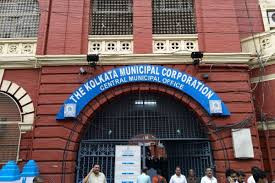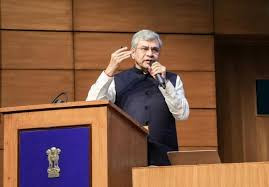PM Modi Chairs High-Level Meeting Following Operation Sindoor Amid Escalating Indo-Pak Tensions

IIE DIGITAL DESK : The aftermath of India's precision airstrikes under "Operation Sindoor," Prime Minister Narendra Modi convened a high-level meeting with key ministers and defense officials to assess the evolving security situation and strategize further actions. The operation targeted nine locations in Pakistan and Pakistan-administered Kashmir, identified as hubs for terrorist organizations such as Jaish-e-Mohammed and Lashkar-e-Taiba, in retaliation for the April 22 terrorist attack in Pahalgam, Kashmir, which claimed the lives of 26 Hindu tourists.
The meeting, held at the Prime Minister's residence, included Defence Minister Rajnath Singh, Home Minister Amit Shah, National Security Advisor Ajit Doval, and top military commanders. Discussions focused on evaluating the outcomes of Operation Sindoor and preparing for potential retaliatory actions from Pakistan. Home Minister Amit Shah commended the armed forces for their precise execution of the operation, emphasizing India's commitment to national security.
Pakistan condemned the airstrikes as an "act of war," claiming civilian casualties and asserting that five Indian aircraft were shot down—a claim India has denied. In response, Pakistan authorized its military to take "corresponding" retaliatory action, raising fears of an escalating conflict between the two nuclear-armed countries.
International leaders, including those from the United States, United Kingdom, China, and Turkey, have called for restraint and urged both nations to engage in diplomatic dialogue to de-escalate tensions. The United Nations expressed deep concern over the potential for further escalation and emphasized the importance of maintaining regional stability.
Following the meeting, the Prime Minister's Office released a statement reaffirming India's commitment to combating terrorism and protecting its citizens. The statement also expressed a willingness to engage in dialogue, provided Pakistan takes concrete steps to dismantle terrorist networks operating within its borders.
As the situation remains fluid, the Indian government has put security forces on high alert, particularly along the Line of Control. Evacuation plans and civil defense drills have been initiated in border areas to ensure civilian safety.
The high-level meeting underscores the gravity of the current situation and the government's resolve to address both immediate security concerns and long-term strategic challenges posed by cross-border terrorism.
In the aftermath of India's precision airstrikes under "Operation Sindoor," Prime Minister Narendra Modi convened a high-level meeting with key ministers and defense officials to assess the evolving security situation and strategize further actions. The operation targeted nine locations in Pakistan and Pakistan-administered Kashmir, identified as hubs for terrorist organizations such as Jaish-e-Mohammed and Lashkar-e-Taiba, in retaliation for the April 22 terrorist attack in Pahalgam, Kashmir, which claimed the lives of 26 Hindu tourists.
The meeting, held at the Prime Minister's residence, included Defence Minister Rajnath Singh, Home Minister Amit Shah, National Security Advisor Ajit Doval, and top military commanders. Discussions focused on evaluating the outcomes of Operation Sindoor and preparing for potential retaliatory actions from Pakistan. Home Minister Amit Shah commended the armed forces for their precise execution of the operation, emphasizing India's commitment to national security.
Pakistan condemned the airstrikes as an "act of war," claiming civilian casualties and asserting that five Indian aircraft were shot down—a claim India has denied. In response, Pakistan authorized its military to take "corresponding" retaliatory action, raising fears of an escalating conflict between the two nuclear-armed countries.
International leaders, including those from the United States, United Kingdom, China, and Turkey, have called for restraint and urged both nations to engage in diplomatic dialogue to de-escalate tensions. The United Nations expressed deep concern over the potential for further escalation and emphasized the importance of maintaining regional stability.
Following the meeting, the Prime Minister's Office released a statement reaffirming India's commitment to combating terrorism and protecting its citizens. The statement also expressed a willingness to engage in dialogue, provided Pakistan takes concrete steps to dismantle terrorist networks operating within its borders.
As the situation remains fluid, the Indian government has put security forces on high alert, particularly along the Line of Control. Evacuation plans and civil defense drills have been initiated in border areas to ensure civilian safety.
The high-level meeting underscores the gravity of the current situation and the government's resolve to address both immediate security concerns and long-term strategic challenges posed by cross-border terrorism.
You might also like!





